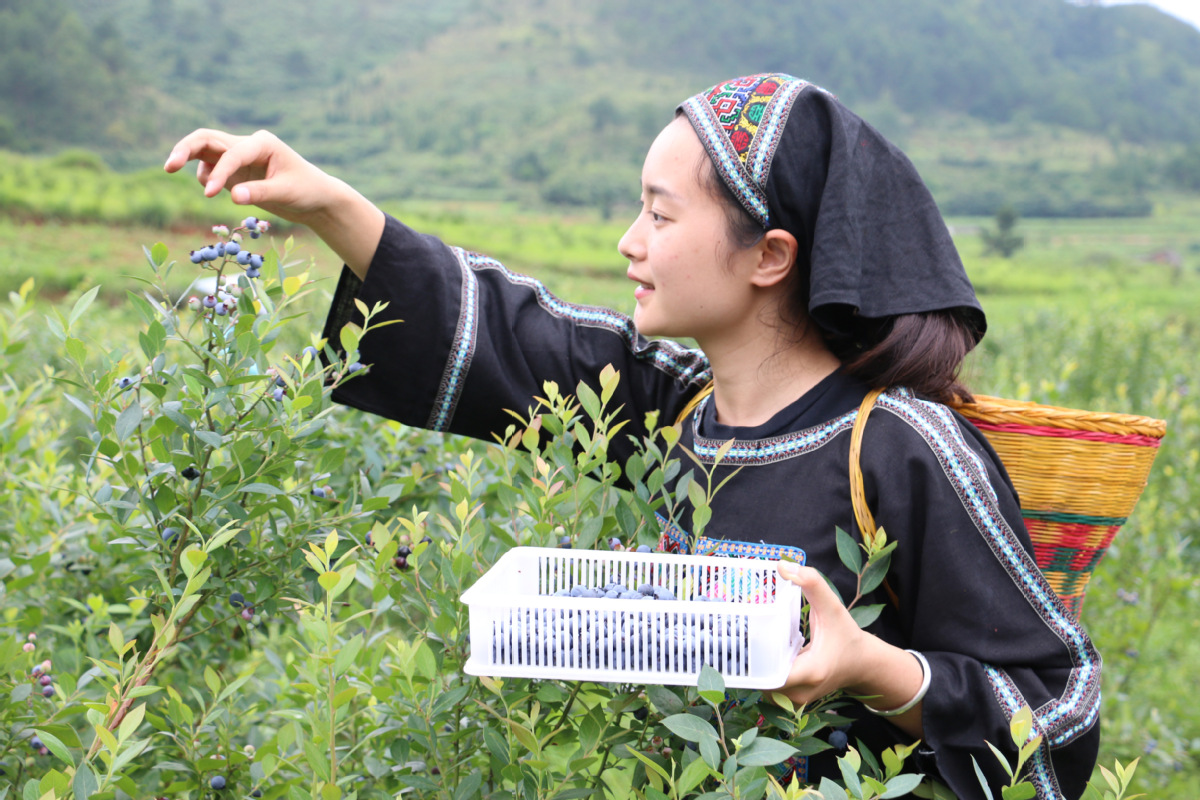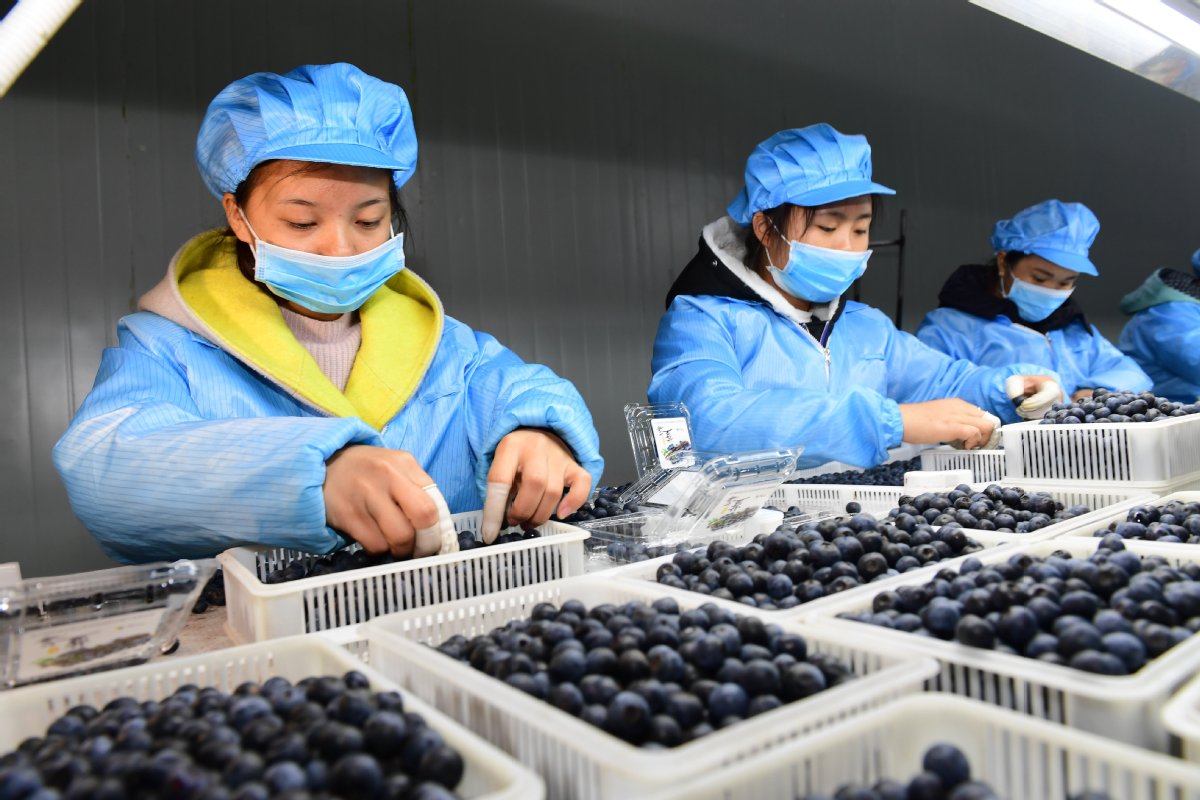
From the People's Daily app.
And this is Story in the Story.
Since 2012, China has made tremendous achievements in reducing poverty in its rural areas.
In the past six years, the country has lifted 82.39 million rural poor out of poverty, with their numbers going from 98.99 million in 2012 down to 16.6 million in 2018.
At a recent UN meeting, China's rural development model was hailed for reducing rural urban migration.
Remy Sietchiping, head of the regional and metropolitan planning unit at UN-Habitat said, "The rural transformation model has indicated that villages can have a high standard of living,"
He noted that farmers in rural areas have also been linked to global consumers through the use of an e-commerce platform.
The UN said that life in China’s rural areas is also more desirable because it has less pollution and residents tend to have more disposable income when compared to their urban counterparts.
Today’s Story in the Story looks at Majiang County in Guizhou Province, widely recognized as an industry leader in blueberry cultivation and also known for its poverty alleviation efforts.

A woman of the Gelao ethnic group picks blueberries in Majiang. (Photo: China Daily)
By leveraging Guizhou's advantages of a subtropical climate and fertile soil, Majiang County in the middle of the mountainous province hopes to become a national production and commercial center for blueberries.
Now, it wants to become home to the country's first modern agricultural park that focuses solely on blueberry planting.
Private company Guizhou Everyday Ecological Agriculture Development is a key player that produces more than 1,000 metric tons of blueberries annually.
Last year, it achieved sales revenue of more than $872,000 by selling blueberries and associated products to Beijing and Shanghai, as well as Guangdong, Jiangsu, Zhejiang, Sichuan and Yunnan provinces.
The company will export its "green and organic" blueberries to Thailand and the United Arab Emirates. The company has received large-scale orders and certification to become an exporter.
"Our company purchases blueberries from farmers and packs them before providing them to retailers or blueberry-processing enterprises," said the company’s president Liu Minghao.
The company hires more than 200 farmers, 15 of whom are from impoverished backgrounds, on a part-time basis. They learn how to plant, fertilize and prune the fruit and also how to pack it correctly for transportation.
During the busy summer picking season, they can make $1,200 for three months' work.
Liu said the company hopes to increase its product range by promoting the health benefits of blueberries. Anthocyanin flavonoids give blueberries their rich, deep colors and are known as antioxidants with multiple health benefits.
"In my opinion, the future growth of blueberries should be in the extraction, development and commercial application of anthocyanins, such as for anti-aging and eye protection," he said.

Workers pack blueberries in an airconditioned workshop in Majiang county, Guizhou province. (Photo: Xinhua)
Liu said while their blueberries have a natural slightly sour flavor, discerning customers appreciate that they are organic and free of additives.
"We have eight freezers, which are able to store 500 tons of blueberries, and the cold storage trucks can guarantee their freshness for more than 10 days," he added.
The company is experimenting with natural methods to prevent agricultural pests and diseases attacking the fruit. The experiments are being conducted in conjunction with the College of Agriculture at Guizhou University.
Blueberry planting started in Majiang County in 1999.
The county is home to 4,200 hectares of 20 varieties of the fruit, accounting for 28 percent of blueberry plantations in Guizhou and 7.5 percent nationally.
Supermarket chains like Yonghui Superstores order their blueberries directly from the county.
This year, Majiang is forecast to produce 5,000 tons of blueberries, generating net sales revenue of 200 million yuan. By 2021, it aims to achieve sales revenue of more than 600 million yuan from an output of 20,000 tons.
The county has so far received 150 million yuan in poverty alleviation funds allocated for Guizhou Province.
So far, blueberry planting has helped 6,710 families out of poverty, with each family on average earning an additional 16,100 yuan per year, the local government said.
Last year, the company cooperated with e-commerce retail giant JD and STO Express. On one occasion, it sold blueberries worth more than 300,000 yuan on JD in 30 minutes.
"In the past decade, the planting areas of blueberry in Guizhou have been continuously growing," said Wang Zhenyi, secretary of Majiang County committee.
"Agricultural reform has driven the increase of cash crop cultivation," Wang said.
(Produced by Nancy Yan Xu, Lance Crayon, Brian Lowe and Paris Yelu Xu. Music by: bensound.com. Text from Global Times and China Daily.)


